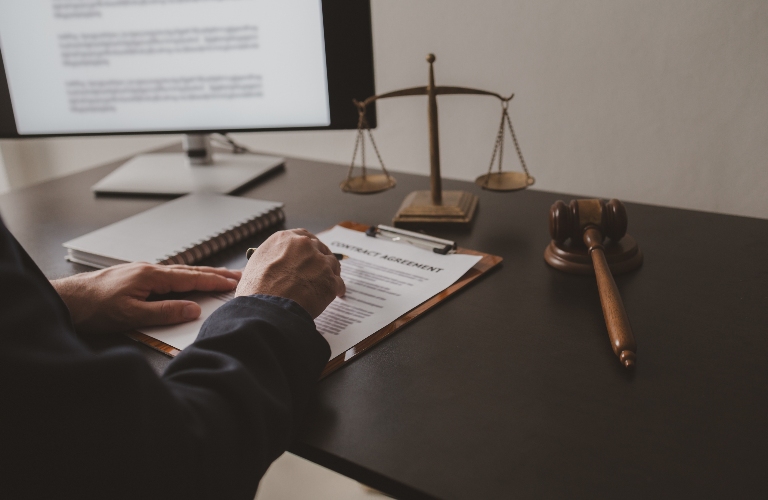An internal investigation at work can feel like a huge shock. You might have years of education and experience, but that usually doesn’t prepare you for how sudden, stressful, and confusing an investigation can be.
Internal investigations can happen for many reasons, but one of the main goals is usually to find out quickly if anyone in the company, or in a government, nonprofit, or religious organization, has done something wrong. The company wants to gather the facts fast so it can fix the problem, prevent things from getting worse, and avoid trouble with the government or losing the trust of the public or shareholders. By learning what happened early, the company can choose to tell regulators or shareholders first and show that it is taking the issue seriously. It also puts the company in a better position to deal with any government action that might come later.
Internal investigations are usually handled, or at least supervised, by lawyers. These lawyers may work inside the company or be hired from outside. They are trained to run these kinds of investigations, and their conversations with employees and company leaders are protected by attorney-client privilege, which helps keep the information confidential.
All of this may work well for the company running the investigation, but what about the employee or manager whose actions are being looked at? Do they need their own corporate investigation attorney? There isn’t one simple answer for everyone, but it’s a good idea to think about getting your own attorney so you can protect yourself and your interests.
Individual vs Company Interests
One thing that is important to remember about corporate investigations is that they are meant to protect the company, not any one individual employee. The goal is to find out if any wrongdoing occurred and, if so, who is responsible. That may be the person who committed the wrongdoing, someone who helped it happen, or a supervisor who knew about the problem but didn’t stop it.
Employees can be confused, or even unnerved, when they have to speak to the company’s investigators. It is easy to assume that the company lawyer has your back, especially since they aren’t government agents and often act calm and friendly. That “friendliness” can cause employees to let their guard down. Even when investigators say they represent the company, not the worker, an employee can still go against their own best interests by trying too hard to be cooperative, open, or helpful.
The Surprising Consequences of a Corporate Investigation
Being cooperative is considered appropriate work[lace behavior. So, when an employee is being investigated, they may put extra effort into demonstrating that and other useful qualities, especially if they’re worried about the consequences of their actions or afraid of being let go.
Obviously, keeping your job during a corporate investigation is ideal, but you also need to think about other potential outcomes. If you tell the company’s investigators something that reveals a crime, paying bribes in another country, for example, the company may decide to share that information with government agencies. This is especially true if the company thinks that it will protect them. Keep in mind that the investigators and lawyers don’t work for you, they work for your company. They may also share harmful information with shareholders or the public, which could hurt your career and personal life.
So, while your job may depend on how you cooperate during an internal investigation, your career, and even your personal freedom, can also be affected by whether you choose to cooperate and what you say when you do.

Working With Your Own Lawyer During a Corporate Investigation
Due to these risks, if you think an internal investigation is coming, or has already begun, it is a good idea to at least speak with a corporate investigation attorney who handles these types of cases. Your own lawyer will look out for your best interests, not your company’s. They can help you decide whether you should talk to the investigators, whether they should be there with you, how to get ready for interviews, what to expect if the company wants to look at your laptop or phone, and anything else that could affect you.
Sometimes your lawyer may decide it’s best to stay in the background and not be involved directly in the investigation. Other times, it may be better for them to be there with you and speak up on your behalf. By working with a lawyer who is focused only on protecting you, you can get through the confusing and stressful process of an internal investigation without having to face it by yourself.
Contact a Trusted Corporate Investigation Attorney
If you find yourself in a situation where you are going to be interviewed in connection to a corporate investigation, schedule a confidential consultation with an experienced corporate investigation attorney from Aaron L. Wiley Law, P.C. Aaron L. Wiley has over 30 years of experience, 18 of which were spent as a federal prosecutor. He has handled numerous investigations involving financial fraud, healthcare rules, and government-related misconduct.
We understand how government agencies look at the results of internal investigations and know how to design an investigation in a way that protects both legal and reputational interests. We can be reached at (254) 566-3860 or you can fill out the simple contact form on our website.


